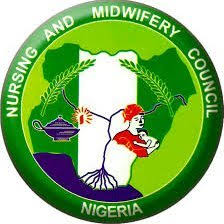The World Health Organisation (WHO) has advised the federal government and governments of other member states in the region to increase their current levels of investments in TB care and prevention.
WHO Regional Director for Africa, Dr Matshidiso Moeti in a statement to mark this year’s World TB Day said the current levels of investment by national governments fall far short of levels required to end the epidemic by the end date of the Sustainable Development Goals.
“The 2018 WHO Global Report indicates that the disease burden caused by TB is falling globally, in all WHO regions, and in most countries, but not fast enough to reach the first milestones of the End TB Strategy in 2020.
.png)
“In the WHO African Region, declining cases of TB cases (4% per year) placed it second among all WHO regions over the period between 2013 and 2017. Also, particularly impressive reductions (4–8% per year) have occurred in southern Africa (e.g. Eswatini, Lesotho, Namibia, South Africa, Zambia and Zimbabwe), following a peak in the HIV epidemic and the expansion of TB and HIV prevention and care, “she said.
She said efforts must be made to identify and remove the challenges that were slowing down progress, as well as adopt and roll out the most cost-effective policy options and interventions.
She said: “Core TB control services should be funded from domestic resources, and universal health coverage introduced to ensure quality assured preventative, diagnostic, treatment and care services. “
Dr Moeti said national governments need to adopt policy and programmatic actions to foster a multisectoral response to end the epidemic, adding “Within the broader context of a revitalized Primary Health Care system, these measures should include initiatives to look for and effectively treat all existing cases, and scaling up preventive treatment for high-risk populations, especially people living with HIV and child contacts of known TB cases.”
According to her, to end the epidemic by 2030, member countries also need to ensure universal access to the WHO recommended rapid molecular tests as first-line tests for diagnosis for all presumptive TB cases, as well as to adopt the new WHO recommended drugs and drug combinations for treating drug-resistant TB.
While saying civil society organizations and community systems need to be strengthened to provide diagnostic support and care where patients live and work, she said they should also facilitate access to needed services, and to assist governments in scaling up services.
The WHO Regional Director pledged that WHO would work with governments, other partners and communities to support the above actions towards ending the TB epidemic by 2030, if not earlier.
ABUJA: Training Schedule for Basic Life Support BLS, Pediatric Advanced Life Support (PALS), Advanced Cardiovascular Life Support ACLS, First Aid, CPR, AED
PORTHARCOURT: Training Schedule for Basic Life Support BLS, Pediatric Advanced Life Support (PALS), Advanced Cardiovascular Life Support ACLS, First Aid, CPR, AED
LAGOS: Training Schedule for Basic Life Support BLS, Pediatric Advanced Life Support (PALS), Advanced Cardiovascular Life Support ACLS, First Aid, CPR, AED
STOP paying for airtime and electricity, Let your phone pay its bills with ScreenT




